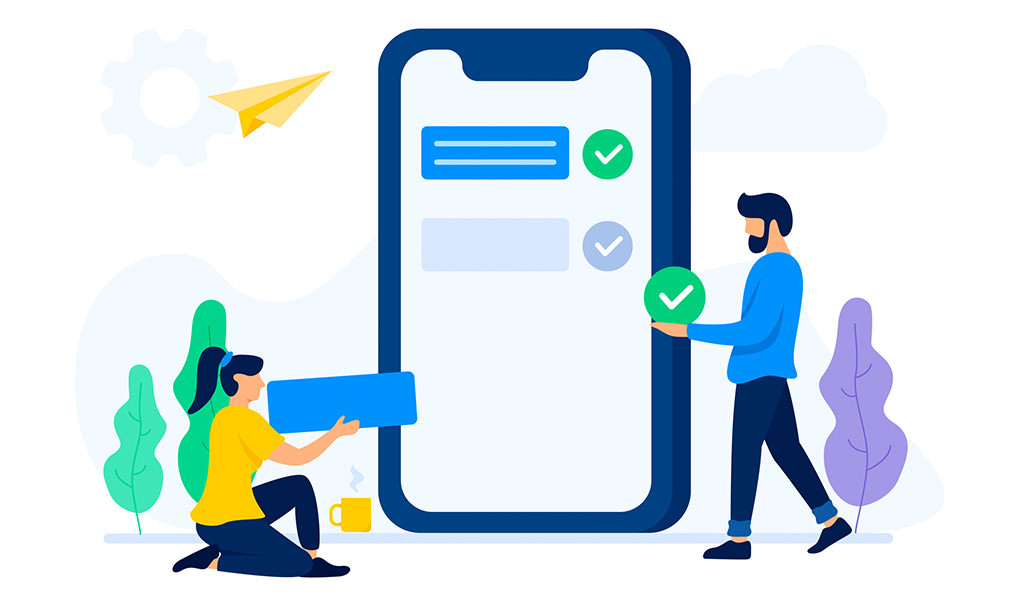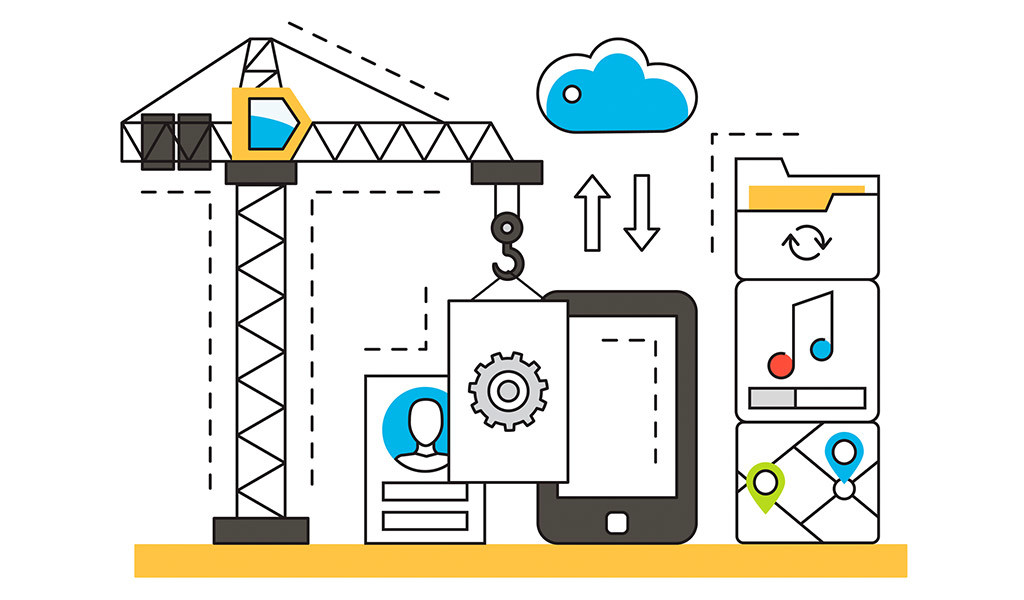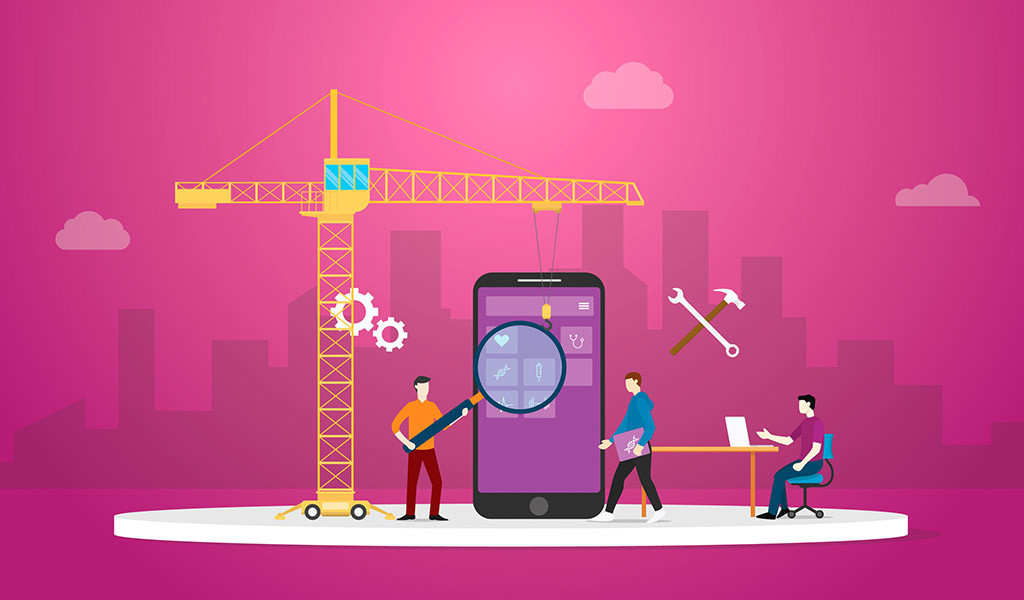
For small and medium-sized businesses who built apps before 2016, their main motivation was to increase sales. The 2017 report titled Small Business Digital Marketing Survey by Clutch, found that 42% of businesses said increasing sales was the top reason for developing an app. For businesses that developed an app after 2016, the top reason was to improve customer service. This change represents a huge shift in focus for businesses all over the world. We now live in a customer-focused world. Delivering high-quality customer service is now mandatory if you want your business to thrive. The consumers of 2020 are now more motivated by having a good experience than they are on getting the lowest price.
Today we’re going to look at why you should build an app, and how having an app leads to better customer experiences.
Why You Should Build Mobile Apps
We’re in the digital age and there are literally thousands of digital solutions and strategies out there. With so much choice, it can be difficult to know where you should focus your efforts. Some options are more obvious than others. For example, you’d find it difficult to find a business in 2020 that doesn’t have a website. However, there are still plenty of businesses that still don’t have an app. Like with anything else in business, you need to see the evidenced-based value in something before you commit. So why should you build mobile apps for your customers?
- Business apps are the second most popular category of app, with game apps being the most popular.
- 3.5 billion people have smartphones in 2020, and this is expected to rise to 3.8 billion in 2021.
- Online shopping leads to more shopping! Research by Statista found that when a smartphone user engages with online shopping (either on a browser or on a mobile app), the next app they open will also be a shopping app. By having a dedicated app where you can provide an online store and customer service can increase the amount of customer engagement.
- Young smartphone users spend more time on apps than any other age group. If young people are a significant proportion of your customer base, then having a mobile app is essential.
- Users spend 87% of their time on apps compared to 13% of their time on the browser. Be where your customers are.
- Although mobile-focused websites get more traffic, visitors spend significantly more time on apps.
These bullet points highlight the external reasons why building an app makes sense for the vast majority of businesses. If you understand the current nature of mobile app usage, then you can decide whether it makes sense for your business.

The Benefits of Having a Mobile App
It’s another way for your customers to contact you!
Over the years businesses have shifted from one channel to multi-channel, and now to omnichannel. It’s astoundingly clear that customers care strongly about having options. Only offering one, or even a few communication channels can severely limit your ability to provide good customer service. When you limit options, some customers will inevitably be frustrated or possibly feel helpless. We can’t always engage with a communication option. For example, if you only provide a phone number to call, what happens to customers who have a broken speaker on their phone? Now they can’t contact you, they’ll be frustrated, and they’ll think twice about doing business with you again.
Sales Growth
When a customer visits your website, you have a very limited amount of time to make an impression on them and convert them into a customer. When the user is done with your website, they’ll move on to something else. You can no longer contact them – the window of opportunity has now closed. With an app, you’re always present. Your app can send push notifications to keep customers updated, offer them discounts, and more.
Growing Customer Loyalty
Apps create communities. They are a place your customers can always go to and they take a minimal effort to engage with. You can build your app to maximize on this and grow your customer loyalty. Take full advantage of personalization based on the data you know about your customers from their account information.
Branding
An app is another way of showing off your brand and proving your brand integrity. Your brand should be consistent and memorable. Your customers should recognize your app based on your other branding channels.
Data and Analytics
Apps are an extremely valuable source of data. When users download your app and use it, you can track what they do on the app, how long they spend on the app, the conversions they have with customer service, and what they buy. This data is extremely valuable because you can link every interaction to an individual customer. When a consumer interacts with your website, you often only know key details about them if they sign up for an account, log in, buy, or otherwise choose to share their data. For anyone who doesn’t, you will have some data, but this data is faceless. With a mobile app, you can require each customer to create an account or login before they proceed. This will give you insights into your customer segments, customer behavior, purchasing behavior, and more.
The Impact of Apps on Customer Service
Self Service and Automation
Apps are a great way to get your business on track with automation. Mobile apps are usually custom-built and built for current hardware. This means you’re not restricted by old contracts, the limits of your hardware, or long-standing business goals that have to come first. If you’re creating an app for the first time, then you’re in a unique position. You can choose to automate with your app now and then automate other areas of the business later.
One key area of automation and AI that apps excel in is self-service. Your app should have easy to find and very user-friendly self-service tools. This can be a chatbot, an FAQ section, or short blogs to educate the customer on your product.
Customers prefer to self-serve where they can because it means they don’t have to give up their free time to potentially wait in a customer service queue and be 100% focused on that task. However, your self-service functions must be excellent. Make sure that your content is meaningful, addresses common issues, and that there’s an option for a customer to talk to an agent if they can’t find what they are looking for. There are few things more frustrating than being stuck in a self-service loop where you can’t find the answers you’re looking for.
24/7 Availability
Apps don’t have opening hours, they’re up and running all the time. If you can’t offer a 24/7 customer service operation, then you should be offering a chatbot and an excellent self-service section on your app. There should always be a way for your customers to contact you. Never make it difficult for them!

The Impact of Apps on Customer Experience
What does your business sell? If you answered with the name of your product or service, then you’re only half right. Sure, you sell a product, but you’re also selling experiences. You’re selling emotions and memories. Not all experiences have to be life-changing, not all emotions are intense, and not all memories long-standing. However, you can’t remove these elements from the customer journey, so instead, you have to learn to shape them positively. If a customer spends several minutes trying to find the thing they want on your app, they’ll be frustrated. They will be having a negative emotion and a bad experience. There’s a high chance they will try a different company next time. Below we’re going to look at the different ways you can improve customer experience with apps, and the impact apps have on customer experience.
Frictionless Customer Journey
Friction is a leading cause of buyer frustration. It should not be difficult for the customer to navigate through the customer journey. Here are a few ways apps can help reduce friction.
- Simple and straightforward purchase route – there should be very few steps necessary to buy a product. You can design your app with this in mind.
- Minimize repeated actions. Allow your customers to sign in once and stay signed in for example.
- Provide key information early on. No one likes bad surprises, so don’t deliver them. If you have information that you think is likely to affect the customer journey, purchase decision, or experience, tell the customer early on. This will empower them to make an informed decision and will increase their trust in your business. One example of this is IronPlanet. IronPlanet connects buyers and suppliers of heavy machinery. This equipment is highly specialized and also expensive to ship due to its size and weight. The cost of shipping is often the decider when it comes to whether a customer will buy the machinery or not. Because of this, IronPlanet displays the cost of shipping next to each product as you browse. This is a specific example, but you can apply the approach to any extra costs that exist in your business. Customers can feel angry if they get to the checkout only to find the total amount is beyond what they were expecting to pay.
Convenience
Your customers will never be without their smartphones, which means they’ll never be without your app. They can engage with your business quickly and conveniently. However, convenience goes beyond this. You can allow customers to set up repeat purchases of products they buy regularly, you can remind them when discounts are available, you can save their payment details so they don’t have to input them each time, and more.
Personalization
If everyone using your app has an account, then you can tailor their experience to their preferences. Does your customer buy lots of a specific type of product? Show them similar products rather than trying to push less relevant products. By analyzing their buying behavior, you can even offer combo packages of products at discount prices. You can create individual combos for types of buyers or individual buyers. The goal should be to deliver value to your customers – offer products that will solve their individual wants or needs.
Importance App Features to Improve Customer Experience
- In-app Search. 83% of customers say that product search features are important, yet 35% said they were not satisfied with the search results in smartphone apps. If you’re going to have a search function in your app, then it must work well. Make sure you tag products well so that customers get meaningful results. Also, be careful not to blanket tag lots of products if they vaguely fall into a category. Customers are using the search function to try and reduce the number of products they have to sift through.
- Multi-Factor Authentication. Customers care about privacy and security, so you should too. MFA also allows you to create single sign-on options and reduce the number of times you require your customers to log into your app.